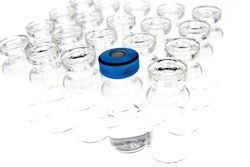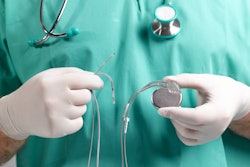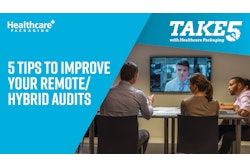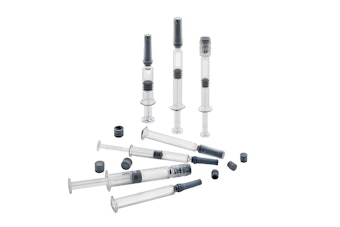Quick hits:
- A Sept. 2020 FDA guidance launched the ASCA Pilot Program on biocompatibility.
- The aim is to promote consistency in medical device testing and expedite review of submissions for eligible devices.
- If testing performed to standards at accredited labs yields favorable results, med device brand owners can submit a summary report instead of a full report.
- This is expected to result in expedited pre-market review.
Related to this episode:
- Demystifying FDA’s ASCA on Biocompatibility for Expedited Review
- List of FDA's ASCA-Accredited Testing Laboratories
- Medical Product Changes Stemming from User Centered Design
- Visit PMMI's Business Intelligence Library and download their executive summaries of their latest reports for free
 | Read the transcript below: |
I'm Keren Sookne with Take Five with Healthcare Packaging.
Today, we're talking about FDA's new ASCA program that may help med device manufacturers speed review of pre-market submissions by testing to recognize standards performed at accredited labs. So before we get into the details of the program, what does ASCA stand for? This is the accreditation scheme for conformity assessment.
So this program is something that Toxikon’s Chris Parker presented at MD&M BIOMEDDigital. He explained that in September 2020, the FDA published its final guidance on the ASCA pilot, which launched a program where labs that perform testing for biocompatibility—as well as basic safety and essential performance—can become accredited by the FDA.
So the key takeaway of this program for device manufacturers is that testing performed to recognize standards at an accredited lab may be submitted with only a summary report instead of a full report, of course provided that no unexpected results occur, and they can expect an expedited review during submission.
So just to go over the timeline of recent events—in early 2021, the first wave of accredited bodies was published. And then just recently on April 12th, 2021, the first wave of FDA approved labs was posted. As of this recording, there were 53 labs on that list.
Participation in this program is completely voluntary and it revolves not just around technical standards, but quality systems as well. Now a really important detail to note is that labs are not given blanket accreditation. The FDA website is going to show you what methods each lab is accredited for. A lab could become accredited for multiple methods or just cytotoxicity (for example). So you really have to ensure also that your device is eligible for the program. There are a few ineligible devices including those with liquids, gels, devices containing nanomaterials and absorbable and in-situ polymerizing devices. So as Parker noted, things that are going to break down or have an active integration that could polymerize such as skin glues, those are a bit more nuanced and won't apply for the program. But for catheters, bone screws, pacemakers, devices like these, they are welcome to participate.
As you can imagine, FDA requires rigorous lab training for technicians, study directors, and trainers to gain that accreditation. So this is certainly no walk in the park. There are proficiency evaluations. They're also going to review lab SOPs, broad data sheets, protocols, and report templates. So another key thing is that during testing, control over sample prep is really key, so times, temperatures, things like that. Post extraction changes that take place, like pH drops or rusting, may require a manipulation to proceed with testing, and at that point you may be going off script, so to speak. And the FDA would at that point likely prefer the full report versus the summary report. Beyond the summary report brand owners will need to prepare a declaration of conformity and this includes where and when testing was performed, how test articles compare to predicate, and issues brought up by the lab that needs to be resolved.
Another thing to look out for is if anything was questionable. Perhaps there's a case where a result is technically passing, but the lab knows from their experience in seeing thousands of devices that the result may be indicative of a problem in the future. This discussion should be included in that declaration as well as any adverse or unusual findings. So if all testing is performed without issues, you'll get, in essence, a lab's “stamp of approval” and then you may see expedited timelines in the approval of your submission.
Beyond the obvious benefits for brand owners, Parker hopes this program will improve the industry as a whole—so manufacturers, test labs, and FDA—hopefully all gain consistency in how they perform and report testing. Additionally, this represents a new open channel between FDA and test labs to get questions answered and innovate together to get to that more collaborative state that we've been hearing about for so long.
So that concludes things for today. Thanks and see you next time at Take Five with Healthcare Packaging.






















